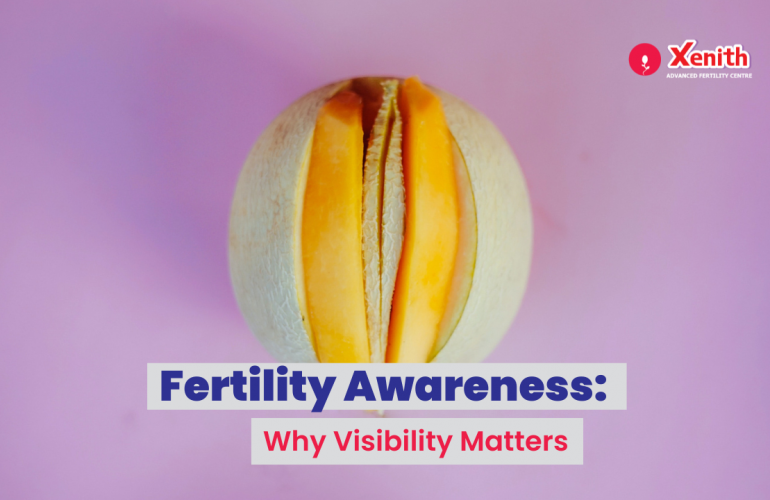Women Health – Coping With Anxiety Amid Covid
“When will life get back to normal? Will life ever get back to normal? I can’t continue like this much longer.”
These words are commonly expressed by women across the country. In India, over 2 million women are working – that’s nearly 20% of the workforce. In an urban city like Pune, about 26% of families are dual income earners. Women hold top positions in nearly 9% of Indian firms but at home, it is often a different story. You may be able to relate to Shruti’s life right now:
Like many other women, Shruti is a professional working woman. She lives with her husband, their 6-year-old daughter and Shruti’s in-laws. She and her husband have been longing for a second child but that doesn’t seem to be happening and that is also worrying Shruti in the back of her mind. They have been wanting to see a fertility specialist but have been putting it off.
— Before the lockdown, Shruti had hired a maid for the whole day to look after the household and her aging in-laws. She was lucky enough to get a cook, too, who whipped up delicious food. Life was set.
— After the lockdown, Shruti and her husband began working from home. They decided to lay off the maid for some time due to her in-laws who were at high risk for contracting Covid.
— Shruti would get up at 5:30 am. By the time she finished with the routine cleaning and breakfast, it would be 9:00 am – time to log in at work.
— Keeping up with the demands of working from home, household chores, parenting …. how long can a 6-year old play by herself when Mummy is at home? Aged parents need attention, too. And with the hubby at home, things can get very demanding.
— Work-from-home has no limits to work hours. Many companies are demanding more hours from their employees and expecting them to be available outside working hours. This coupled with the stress of the job and the frustrations of meetings, zoom calls, and the usual miscommunications was in itself stressful.
— Day in and day out there were lunches and dinners to prepare, piles of dishes to wash, cleaning, washing, folding, dusting… Shruti’s days seemed to be getting longer and longer. Even the intimate act of making love seemed like a chore.
— While Shruti and her husband had their own bedroom, the house suddenly seemed too small for 4 adults and one playful child. Being in the house with everyone inside 24 x 7 made her feel cooped up. Shruti longed for some “me” time or space for solitude.
— After 7 months, Shruti could not sleep –feelings of frustration, pressure, guilt, fear, and anxiety changed her from the once confident woman she was to someone crushed by life. There was stress at work combined with the burden of domestic responsibilities. She was lucky her husband was understanding but sprayed across all the news were heart-breaking stories of increasing domestic violence which had increased two-fold since the lockdown and so had divorce rates. She could well understand how things could easily get out of control … is there no way to cope?
Shruti finally came to meet us.
Deciding that she could wait no longer on the fertility issues they were facing and her stress, Shruti and her husband came to us. She shared how she was feeling with us.
Like many women these days, you may be at the end of your tether feeling as if you are hanging on by a thread. Here are some things you can do that may help as we all struggle with the changes that Covid-19 has brought into our lives.
Communicate
Communication is vital to relationships. During the Covid-19 pandemic, it is even of greater importance. The most important aspect of communication is the ability to listen to your family member’s frustrations or anxiety. They are not always seeking a “fix” or a “solution” to the problem. It is important for them to know that their feelings have been heard by someone who cares. Sometimes, a listening ear is all takes to make someone feel better.
Build structure into your lives
Make a schedule for the day. If you have children at home, give them a timetable for the entire day. You can help them along to make sure they are progressing with the activities but let the entire family know what you are doing and what you expect from them. Structure and routine help to build stability.
Share responsibilities
Households, where men are sharing some of the domestic responsibilities, are more likely the places where there are fewer arguments and fights. There is a job for everyone in the family, even a 6-year-old can do his or her bit. The old adage is true – “many hands make light work”.
Just the fact that everyone is doing something together, contributing to the well-being of the entire family can help build tighter bonds.
Understand what is in your control
The Covid-19 pandemic is not a situation that is within our control. There is a famous prayer that is applicable for all of us, at all times and especially now.
“God give me the serenity to accept the things I cannot change; the courage to change the things I can; and the wisdom to know the difference.”
The pandemic has forced limitations on our daily lives. We are experiencing big changes and we can help one another accept those changes and make a positive difference where we can.
Prepare yourself for stressful situations
Recognize the patterns in your life when you react negatively to stressful situations. You may want to write these down. Teach yourself to be positive and patient when you see the triggers. Rehearse in your heart how you want to respond, not react to stressful situations.
Take care of yourself
In the midst of a busy schedule where women are generally the caregivers of the family, don’t forget to take care of yourself.
Make sure you are eating healthy. Stress and anxiety can make you crave “junk” food and more sugary sweets! These will make you feel good for a while but eventually, reduce your energy levels. Ask your doctor about taking supplements.
Schedule yourself some “me” time every day. Let everyone at home know that they should not disturb you during this time.
Take care of your community
Between work, financial pressures, family issues, domestic burdens, and the Covid-19 virus, it can be easy to feel overworked, nearing burnout. Findings from an annual survey from the American Psychological Associated suggested that “we can help ourselves manage stress and feel better by doing good deeds for other people.” It can be small acts of kindness such as calling up a lonely family member or colleague, ordering flowers to be delivered to a friend who is not well, or sending a donation to an NGO. There are plenty of ways to help others and there is plenty of need. Helping others is a gift that comes back to you – it has a positive impact on your life.
Stay connected
Make use of video chats, phone calls, texting, and email to stay connected with friends and family. There is strength in staying connected over regular periods of time.
If you are planning for a baby during these times, come visit us if you are having a hard time conceiving. While we wait for the pandemic to lift, the news of a pregnancy can definitely bring some good news.




